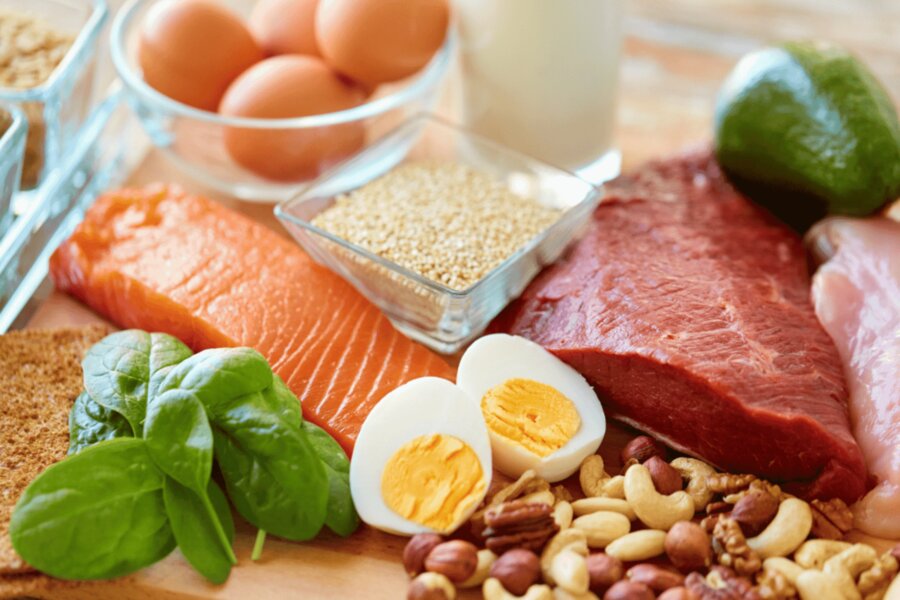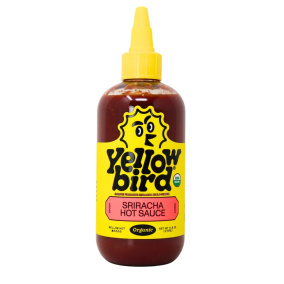
Why A High-Protein Diet Supports Weight Loss
When it comes to weight loss, protein plays a starring role. You'll feel fuller and hang onto precious muscle. The sweet spot? Typically between 1.6 and 2.2 grams per kilogram of your body weight. Load up on quality sources. Plan smart. Watch how protein transforms your weight loss journey into something sustainable.
Ever feel like weight loss is one massive uphill climb? You're tracking every bite. Moving your body. Yet that scale barely budges. What if the issue isn't how much you’re eating but what you’re eating? More specifically, are you getting enough protein?
This isn't just another diet trick. Boosting protein tackles the real biological roadblocks that tank most weight loss attempts. Unlike carbs or fat, protein has this unique ability to dial down hunger, rev up metabolism, and shield your muscles when calories drop.
People who eat plenty of protein tend to feel satisfied longer. Their muscles stick around during dieting. Better yet? These folks also maintain their results, unlike those eating identical calories but skimping on protein.
How Protein Actually Helps You Lose Weight
Key things happen when protein becomes your priority. First, those hormones that signal fullness? They surge. Meanwhile, hunger hormones take a nosedive. Also, and this matters big time, you preserve metabolically active muscle tissue.
Why Protein Keeps You Full
Each protein-packed bite triggers a cascade of fullness signals, including peptide YY and GLP-1. Fat and protein work together here. These nutrients spark digestive hormones that basically tell your brain, "We're good, thanks." The result? You naturally eat less. No willpower battles required.
Protein's hunger-crushing powers include:
- Cranking up CCK, your body's powerful fullness hormone
- Dialling down ghrelin (aka the "feed me now" hormone)
- Creating hours of lasting satisfaction after meals
- Slower digestion = longer-lasting fullness
- Even modest increases improve appetite regulation
More protein equals less hunger. Fewer cravings. You're way less likely to abandon ship when you're not constantly ravenous. Consider protein your anti-hunger insurance. It shields you from those "I could devour the entire kitchen" moments.
Protein Fires Up Your Metabolism
Here's where things get interesting. Digesting protein is work. Hard work. Scientists call this the thermic effect of food (TEF). Protein wins the TEF championship by a landslide.
Your body essentially becomes a calorie-burning furnace when processing protein. Same calories as carbs or fat, but way more energy is spent breaking it down.
The numbers tell the story:
- Protein: 20-30% TEF
- Carbs: measly 5-10% TEF
- Fats: barely register at 0-3% TEF
- Daily calorie burn jumps 80-100 calories on high-protein diets
This happens automatically. Simply eating protein creates a modest but meaningful calorie deficit. Day after day, it adds up.
Between feeling satisfied and torching extra calories, protein delivers a one-two punch for lasting weight control.
Protein Protects Your Muscles During Weight Loss
Cut calories without adequate protein? Kiss your muscles goodbye. Your body raids muscle tissue for fuel when food runs short. Bad news for your metabolism.
Smart protein intake preserves that calorie-burning muscle mass. It prevents the dreaded metabolic adaptation that makes maintaining weight loss feel impossible.
What Happens to Muscle When You Cut Calories
Bodies are resourceful. When food intake drops, they'll find energy somewhere. Without strategic nutrition? Muscle becomes fair game alongside fat stores.
This muscle breakdown creates cascading problems. Your metabolism tanks. Long-term weight control becomes exponentially harder.
Remember: muscle tissue is metabolically expensive. It burns calories around the clock, even during Netflix marathons.
The muscle loss reality check:
- Even minor muscle loss crushes your resting metabolic rate
- Fewer muscles = worse performance and reduced daily movement
- Muscle loss triggers inflammatory responses
- Preserving muscle enhances insulin function and metabolic flexibility
Quality beats quantity when losing weight. Protecting muscle through proper protein creates sustainable, healthier outcomes.
How Much Protein Do You Actually Need
Higher protein intake during calorie restriction helps preserve precious lean mass. Standard protein versus elevated amounts? Higher wins for muscle retention and equivalent (or superior) fat loss. This muscle-sparing effect creates metabolic advantages. Your engine keeps humming even as weight drops.
The target zone: 1.6-2.2 grams per kilogram daily. For most folks, that's roughly 25-35% of total calories.
Strategic protein distribution:
- Spread intake across meals (aim for 20-30g each sitting)
- Prioritize complete proteins containing all amino acids
- Front-load your day - don't save it all for dinner
Quality counts as much as quantity. Complete proteins deliver the full amino acid spectrum your muscles crave. Leucine, abundant in animal products, dairy, and soy, seems especially crucial for maintaining muscle during calorie deficits.
How to Add More Protein to Your Diet
Boosting protein intake doesn't require a culinary degree. Smart choices. Advanced planning. That's the formula for hitting targets without last-minute panic.
Best Protein Sources for Weight Loss
Not all proteins are created equal. The winners deliver essential amino acids plus bonus nutrients.
Animal proteins typically provide complete amino acid profiles in efficient packages. Plant options work too. Just eat enough variety to cover all bases.
Mix it up. Different sources prevent monotony while ensuring comprehensive nutrition. Sustainable beats perfect every time.
Protein all-stars:
- Animal products: chicken breast, turkey, white fish varieties, Greek yogurt, cottage cheese
- Plant powerhouses: tofu, tempeh, plant-based yogurt, edamame, quinoa (yes, it counts!)
- Legume leaders: lentils, chickpeas, black beans, split peas
- Convenience kings: quality protein powders (whey, casein, pea, hemp), carefully chosen bars
- Seafood superstars: salmon, tuna, shrimp (hello, omega-3 bonus!)
Variety wins. Rotating protein sources keeps meals interesting while delivering everything your body demands for optimal function.
Simple Ways to Build High-Protein Meals
Forget complicated formulas. Building protein-rich plates can be intuitive, even enjoyable. The plate method offers foolproof visual guidance. This approach guarantees adequate protein while maintaining overall dietary balance.
Picture your plate in thirds: one section protein, another non-starchy veggies, the final third complex carbs. Each main meal should deliver 20-30 grams of protein (roughly palm-sized portions).
Meal assembly tactics:
- Every meal and snack needs a protein representation
- Vegetarian? Combine complementary plant proteins
- Stock pre-cooked options in your fridge arsenal
- Sunday prep saves weekday stress—grill chicken, boil eggs, cook beans
- Strategic snacks bridge meal gaps
Preparation separates success from struggle. Dedicate weekly time to protein prep. When hunger strikes, you're ready.
Smart snacking maintains energy while contributing to daily targets. Greek yogurt parfaits. Mini protein smoothies. Nut and cheese combos. Portable nutrition that satisfies.
Making High-Protein Eating Work for You
At Natura Market, we get it. Life's hectic. Maintaining optimal protein intake while juggling everything else? Tough assignment. That's precisely why we've curated premium protein solutions spanning every dietary philosophy: keto disciples, paleo enthusiasts, Whole30 warriors, gluten-free folks, plant-based pioneers.
Our shelves showcase convenient protein from brands that actually care about ingredients. Ready to streamline your protein game? We stock everything from grab-and-go solutions for time-crunched professionals to pristine ingredients for kitchen creatives. Real food supporting real results.
Disclaimer:
This blog does not provide medical advice, diagnosis, or treatment. Its content is for informational purposes only and should not be used as a substitute for professional healthcare guidance. Please consult a qualified physician or healthcare provider regarding any medical or dietary concerns. Any topics or product claims mentioned are not intended to diagnose, treat, cure, or prevent any disease. Always review product ingredients and nutrition labels to ensure they are appropriate for your individual needs.



